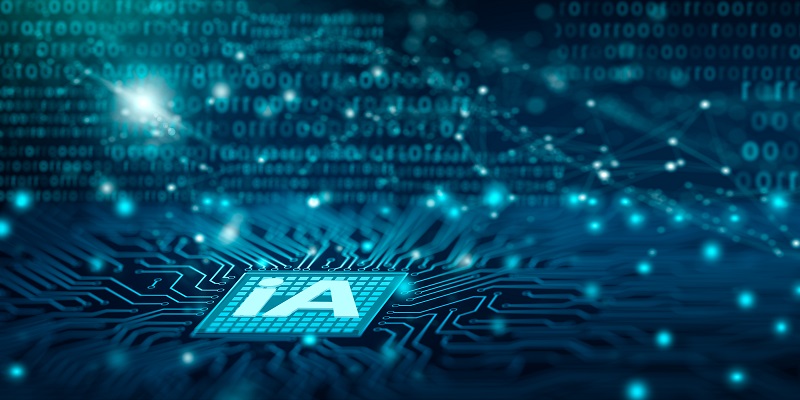“Artificial intelligence” has become a buzzword in the world of technology, promising to revolutionize the way businesses operate and interact with customers. However, many companies still struggle to adopt AI due to various obstacles, particularly with legacy apps and data. A recent survey found that four out of five executives believe that modernizing legacy apps and data stands in the way of potential AI benefits. In this article, we will delve deeper into the challenges facing companies in modernizing legacy apps and data to harness the potential of AI.
Legacy Apps and Data as Obstacles to AI Benefits
Legacy apps and data can hinder AI adoption in different ways. Outdated software systems often lack the capability to support modern AI algorithms and techniques, making it difficult for organizations to integrate them into their operations. This can lead to inefficiencies resulting from outdated processes and workflows. In addition, legacy data can suffer from data quality issues and be incompatible with modern data formats, rendering it unsuitable for AI applications.
Four out of five executives believe that modernization hinders the potential of AI
According to a survey by Mulesoft, 80% of executives believe that outdated legacy apps and data stand in the way of potential AI benefits.
The survey found that organizations are struggling to modernize legacy software due to limited resources, a lack of a culture of change, and integration challenges.
Limited resources
Limited budget and resources are often cited as the main reasons why organizations cannot prioritize legacy app modernization. Upgrading or replacing a system can be expensive, particularly when the underlying infrastructure has also become outdated. Furthermore, providing training and support for the new application can be costly, which can lead to delays in adoption.
Lack of culture of change
The corporate culture of a company can also impact modernization efforts. Organizations that prioritize innovation and change are more willing to spend resources and invest in new technology. Conversely, companies with a more traditional culture may be hesitant to invest in new platforms and prefer to stick with known and trusted solutions, even if they are outdated.
Integration challenges
Organizations with complex IT ecosystems face challenges in integrating new solutions into their existing environment. This can be particularly difficult for legacy systems, which may rely on outdated APIs or data formats. Integrating new solutions can be time-consuming and expensive, and can require extensive testing to ensure everything works correctly.
Cost and security concerns
Companies cite costs and security as major obstacles to modernization. While modernizing legacy systems may bring long-term benefits, most companies are concerned about the initial costs and potential security risks. Concerns around data breaches, cyber attacks, and the potential for system downtime can deter companies from investing in new solutions.
Lower costs and greater security are benefits of modernization
Despite concerns around cost and security, modernizing legacy apps and data can bring significant benefits to organizations. For example, modernizing can lead to lower maintenance costs, improved system performance, and greater stability. Modernization can also improve data processing speed and enhance data security, leading to increased trust in the organization’s operations.
Slow pace of AI adoption
Employees Perceive a Slower Pace of AI Adoption in the Workplace. While AI adoption is increasing in many industries, some employees perceive little progress in their workplace. Many are frustrated with outdated tools and processes, which can hinder productivity and morale. This can result in a skills shortage if employees become less invested in the organization and more likely to seek employment elsewhere.
Top Apps in Need of Upgrades
ERPs, CRMs, and HR Platforms Listed as Top Apps Needing Upgrades. A recent survey found that the majority of organizations most in need of modernizing were using enterprise resource planning (ERPs), customer relationship management (CRMs), and HR platforms. These platforms are often critical to the organization’s operations, yet they can suffer from outdated technology, which can prevent them from realizing the full potential of AI.
Outdated Computing Infrastructure
Delay in Upgrades due to Outdated Computing Infrastructure. Outdated computing infrastructure is another factor that can hinder modernization efforts. Critical tools like ERPs, CRMs, and HR platforms are powered by computing infrastructure that may not be capable of handling modern AI algorithms. This can cause delays in implementation as organizations are forced to upgrade their infrastructure before modernizing their apps and data.
Leadership as a factor in the slow rate of modernization
Organizations that prioritize modernization typically have leaders who champion innovation and change. However, many organizations may be hindered by leadership that is resistant to change or slow in making decisions. Additionally, some leaders may lack the technical knowledge to understand the benefits of modernization, or they may underestimate the true cost and effort required to achieve it.
Cross-functional team relying
Only one-quarter of respondents say companies rely on cross-functional teams. The development of cross-functional teams is crucial to ensure that modernization efforts succeed. Teams that cross departmental boundaries can share knowledge and resources, streamlining modernization efforts and enabling companies to develop best practices that can be applied across the organization.
Legacy apps and data can create significant roadblocks to AI adoption, but they don’t have to. Organizations can overcome these obstacles by investing in modernization efforts through a structured plan and building diverse teams. Cost and security concerns can be mitigated by partnering with vendors that prioritize data protection and offer comprehensive security measures. By overcoming these challenges, organizations can gain significant benefits from modernization, such as improved productivity, streamlined workflows, and enhanced data security. In the end, maximizing the effectiveness of enterprise technology is crucial to drive business growth and stay competitive in today’s fast-changing world.

